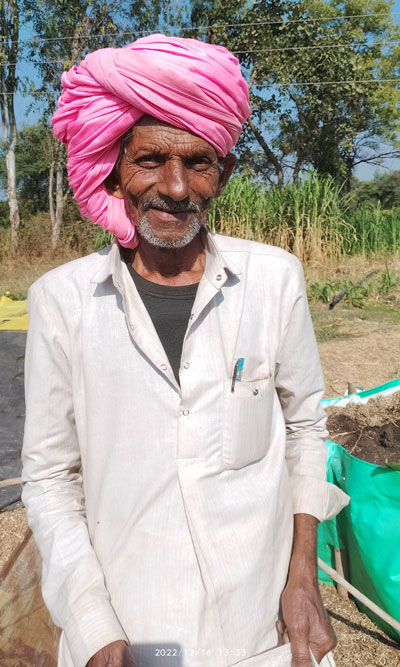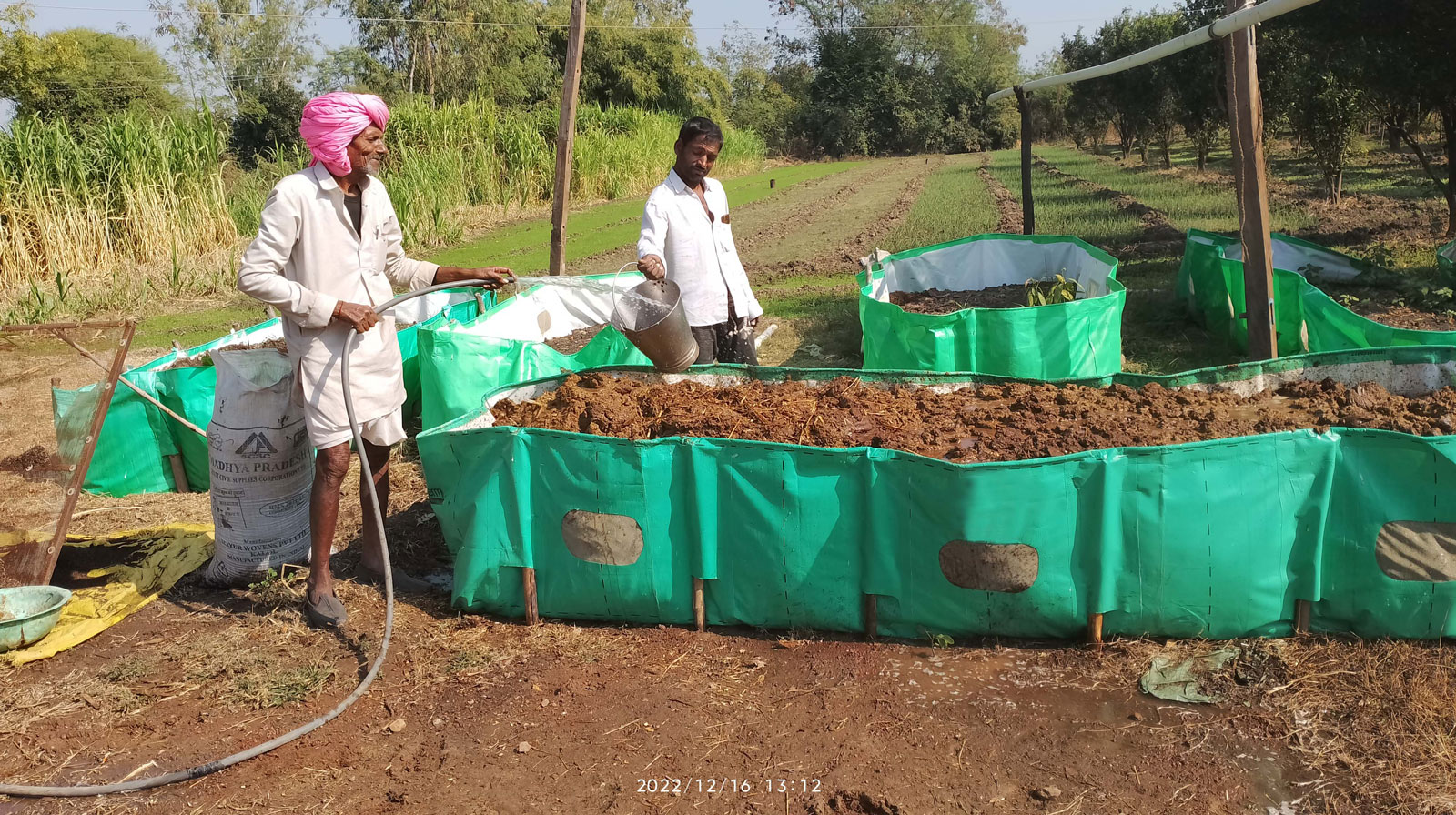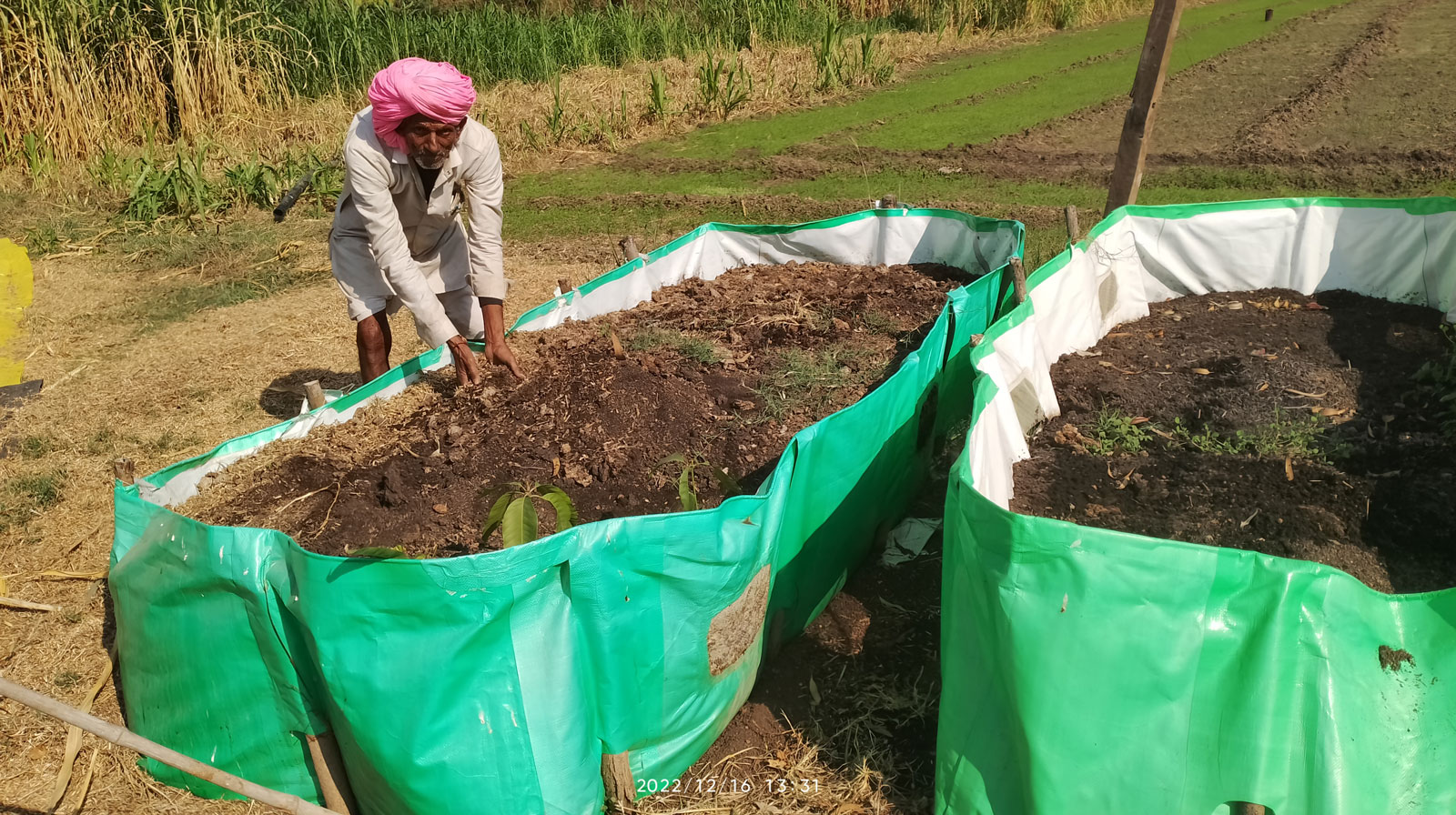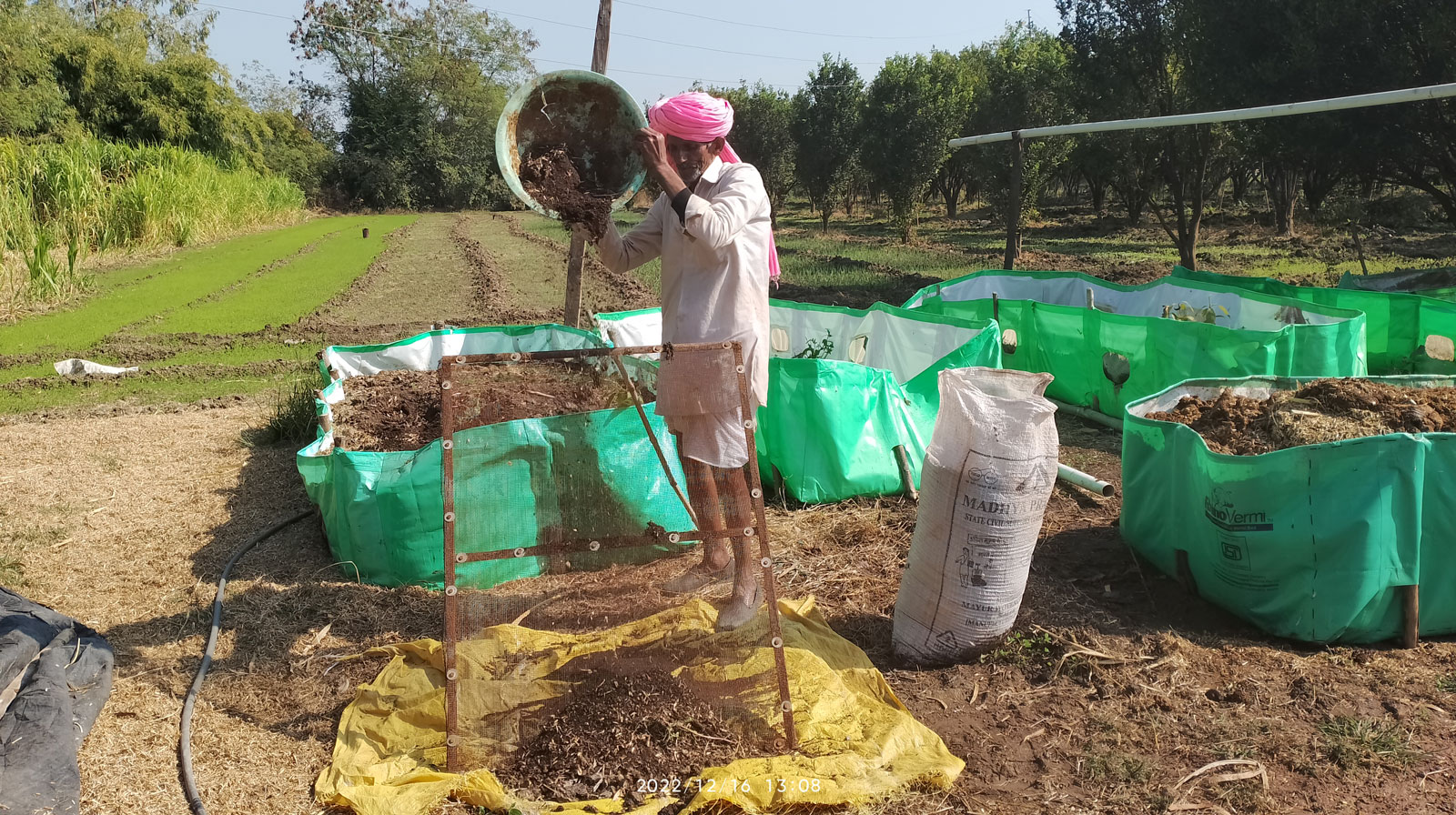How a 65-year-old wheat farmer’s life has turned for the better – through vermicomposting

Sixty-five-year-old Kanwar Lal of Narwal village in Agar Malwa district of Madhya Pradesh had been practicing chemical intensive farming on his 8-acre land for several years. The use of excessive fertilisers and pesticides led to an exponential rise in the input cost, over 60% per acre, while his crop yield remained stagnant. Add to that the degradation of soil quality due to destruction of its physio-chemical and biological properties, such as microbial population, soil composition, soil pH, organic carbon content, and water holding capacity. Further, climate change adversely affected his crop productivity even as pest and disease attacks increased.
“I used to spend around Rs 43,000 every year on chemical fertilisers during the Rabi and Kharif seasons,” says Kanwar Lal. “Due to excess use of fertilisers, the soil was getting hard. Consequently, the crop also required a lot of water. And each year, the amount of fertiliser needed for the crop only increased and so did my input costs.”
Not sure how to fight these challenges, Kanwar Lal shared his concerns with the front-line team of Solidaridad, two years ago. Soon, he joined the training sessions conducted by the field staff of Solidaridad and observed the practical benefits of eco-friendly and sustainable agricultural practices.
To begin with, the field team provided Kanwar Lal with a compost unit. Following the technical advice from experts, he utilised the dung from his small herd of cattle to generate 10 quintals of good quality compost within 40 days of installation. The application of this organic compost to the crop gave him better results compared to chemical fertilisers.
With the regular use of organic compost, his crop yield increased last season – from 9 to 12 quintals in wheat and 250 kg to 400 kg in soybean.
“In peak cultivation season, farmers have to stand in long queues all through the day to purchase chemical fertilisers. It is not only a drain on their time but the high cost of fertilisers also increases the input cost for the farmer,” says Badri Lal Malviya, cluster in-charge. “Further, prolonged use of chemical fertilisers affects soil fertility, which is turn leads to less yield.”
Solidaridad, therefore, is encouraging farmers to transition to sustainable and climate-friendly farming. “A compost unit is provided to farmers to help them make vermicompost using cattle dung and agriculture waste. Earthworms and other technical inputs are also provided,” explains Badri Lal.
Solidaridad, therefore, is encouraging farmers to transition to sustainable and climate-friendly farming. “A compost unit is provided to farmers to help them make vermicompost using cattle dung and agriculture waste. Earthworms and other technical inputs are also provided,” explains Badri Lal.
This Rabi season too, he is using vermicompost on his wheat, orange and marigold crop. In a flower crop too (marigold), the benefits of vermicompost are visible through better flower initiation, fewer instances of flower drops and a decrease in pest attacks.
The vermiwash (the nutrient-rich liquid extract from vermicompost) extracted from each unit is a highly beneficial bio-pesticide for crops which also works as a growth supplement.
Kanwar Lal is now producing three to five litres of vermiwash from each unit, every week. Through fertigation and foliar spray, he is also applying it on the standing crop of wheat and gram.
Going a step further, he is also supplying the vermicompost to other farmers in his community, and bringing home an additional income. His annual income has increased by more than Rs 1.6 lakh since he started using and selling organic vermicompost. To date, he has sold 25 quintals of vermicompost.
Over the next few years, Kanwal Lal wants to try other innovative methods of making compost using cattle horn, dry fish, poultry manure etc. – all of them are rich source of nutrients.
“I am thankful to Solidaridad for bringing the knowledge and skills to my doorstep and helping me transform my farming practices. Today, I am proud to say that everyone in my community looks up to me as a source of knowledge and information,” says Kanwar Lal.
“With the help of intensive awareness drives and training programmes, Solidaridad is encouraging farmers to adopt good agricultural practices,” says Dr Suresh Motwani, General Manager, Solidaridad. “Use of organic manure is one such practice that a large number of farmers have adopted. Organic manure has proven advantages over chemical fertilisers in improving soil fertility, increasing yield and reducing input costs.”
To ensure total adoption of good agricultural practices, Solidaridad works with farmers across all stages of cultivation. “We have a holistic approach of providing agricultural inputs at each stage of farming, from pre- and during cultivation to post-cultivation,” says Dr Suresh.


